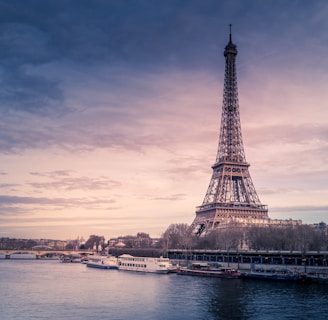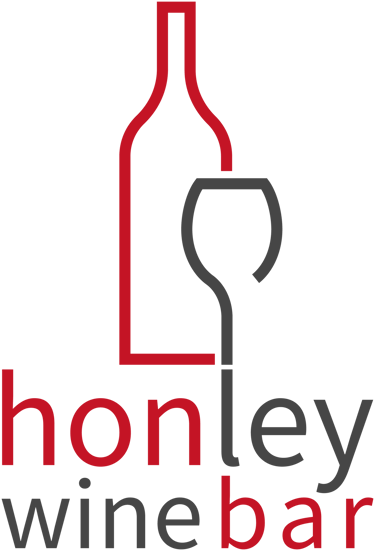French Wine Explorer
No introduction to the modern world of wine can ignore the contribution of France. They didn't make the first wines, but they really started the first wine industry which resulted in huge advances in quality, quantity and passion. Many winemakers from other regions travel to France even today, to learn their methods, secrets and styles and take them home to make better, more exciting and interesting wines.
The program combines theory, practical tasting, and group discussion to encourage confidence and curiosity in French wine. This course is designed for those who have completed our Introduction to Wine syllabus, hold a WSET Level 1 qualification or higher, or have equivalent knowledge. It blends history, classic regions, and contemporary developments in French wine with plenty of French wine! Each 90-minute session combines tasting, discussion, and interactive learning, with a focus on both tradition and innovation.
Session 1: The Roots of French Wine – History & Foundations
In session 1, we'll explore the way French wine came to be the gold standard around the world, and what shaped the grape-growing and wine making industries over time. We'll discuss terroir in more detail than in the Intro course, and we'll look specifically at how that has had such a broad impact on French wine. We'll taste classic styles of French wine, and we'll explore the major wine regions at a high level before diving deeper into them on the future sessions.
Brief history of French wine: Ancient origins, Roman and monastic influence, phylloxera, and the rise of the AOC system.
Introduction to French wine culture: Terroir, appellations, and the role of the vigneron.
Overview of France’s major wine regions: Bordeaux, Burgundy, Champagne, Loire, Rhône, Alsace, Languedoc, Provence, Corsica.
Discussion: What makes French wine the global benchmark?
Session 2: Bordeaux & Southwest – Tradition Meets Innovation
Bordeaux needs little introduction - it's where the big names even non-wine drinkers come from, and the grand chateaux are picture postcard "French wine" examples. We'll look at what makes the left and right banks so distinct despite their geographic proximity, and the effect this has on the wines, their taste and aroma profiles, and their ageing potential. Then we'll dive into the south west of France, home to some truly amazing wines (if you know what to look for)! We'll taste 4-5 wines, and we'll begin trying to unpick the vagaries of Bordeaux labelling - leaving you more confident whether you're picking up a Lafite-Rothschild at auction, or a Mouton Cadet at the supermarket.
Bordeaux: Left Bank vs. Right Bank, key grapes (Cabernet Sauvignon, Merlot, Cabernet Franc), and blending philosophy
Southwest France: Tannat from Madiran and other regional specialties.
Bordeaux’s response to climate change: White grape plantings and sustainability efforts.
Activity: Decoding a Bordeaux label and understanding classifications.
Session 3: Burgundy, Beaujolais & Alsace – From Monks to Modernity
Like Bordeaux in the last session, Burgundy needs little introduction - but it definitely needs some explanation. While the big houses dominate in Bordeaux and produce large volumes, Burgundy is a little more... boutique. Growers often work with parcels of land that would make a London garden look big, and producers turn out a dizzying number of differently labelled bottles as a result. Decoding Burgundy labelling could be a degree in its own right, but we'll teach you the highlights. We'll also take you on a whistlestop tour through Beaujolais - SO much more to it than just Nouveau! - and Alsace, where France, Switzerland and Germany blur the lines of politics, geography and winemaking.
Burgundy: Pinot Noir, Chardonnay, the concept of climats, and the impact of monastic heritage.
Beaujolais: Gamay, the rise of white Beaujolais (Chardonnay), and changing trends.
Alsace: Aromatic whites (Riesling, Gewürztraminer), dry vs. off-dry styles.
Discussion: How tradition and innovation coexist in these regions.
Session 4: Loire, Rhône & Languedoc – Diversity & Discovery
The Loire and Rhône valleys are VERY different from each other, and each has its own sub-regions which differ almost as much. We'll work our way along the river from the Atlantic at the Loire, and along the edge of the Alps in the Rhône, looking at some of the best wines France makes and some styles made in few other places. Then we'll touch on the Languedoc-Roussillon; a huge area, with some great wines and some not so great!
Loire Valley: Sauvignon Blanc, Chenin Blanc, Muscadet, Cabernet Franc; regional diversity from Muscadet to Sancerre.
Rhône Valley: North vs. South (Syrah, Grenache, blends), Châteauneuf-du-Pape, and emerging styles
Languedoc-Roussillon: The largest French wine region, value wines, organic/biodynamic trends, and sparkling Crémant
Activity: Matching wines to food and occasion
We finish our French Wine Explorer with a look at perhaps the most famous region to most Brits - Champagne. We'll round that out with Provence, famous for its rosé but also offering more than just that, and then we'll look at what climate change is doing to the industry in France and how it's making it possible to grow good wines in areas that previously wouldn't have been suitable.
We'll then finish up with a tasting and a little challenge for fun!
Champagne: Traditional method, key grapes, and the global influence of sparkling wine.
Provence: Rosé revolution, Mourvèdre from Bandol, and Mediterranean influences
Emerging regions: Brittany, Lorraine, Île-de-France, and the impact of climate change and new plantings
Discussion: Trends shaping French wine – climate adaptation, new grapes, and the next generation of vignerons
Session 5: Champagne, Provence & Emerging Regions – The Future of French Wine
Congratulations!
Completing all five sessions will equip you with the knowledge to confidently predict what you're going to get in the bottle despite France's often complicated (overcomplicated?) labelling scheme, and to pick wines - whether at the supermarket, a specialist wine retailer or broker, a restaurant or having a drink with us - that showcase the best of what France has to offer... usually at prices which are a tiny percentage of the big names, for quality that's surprisingly close!
You'll get a certificate from us, bragging rights to your friends, and just enough little factoids to annoy the non-wine people in your life ;)


